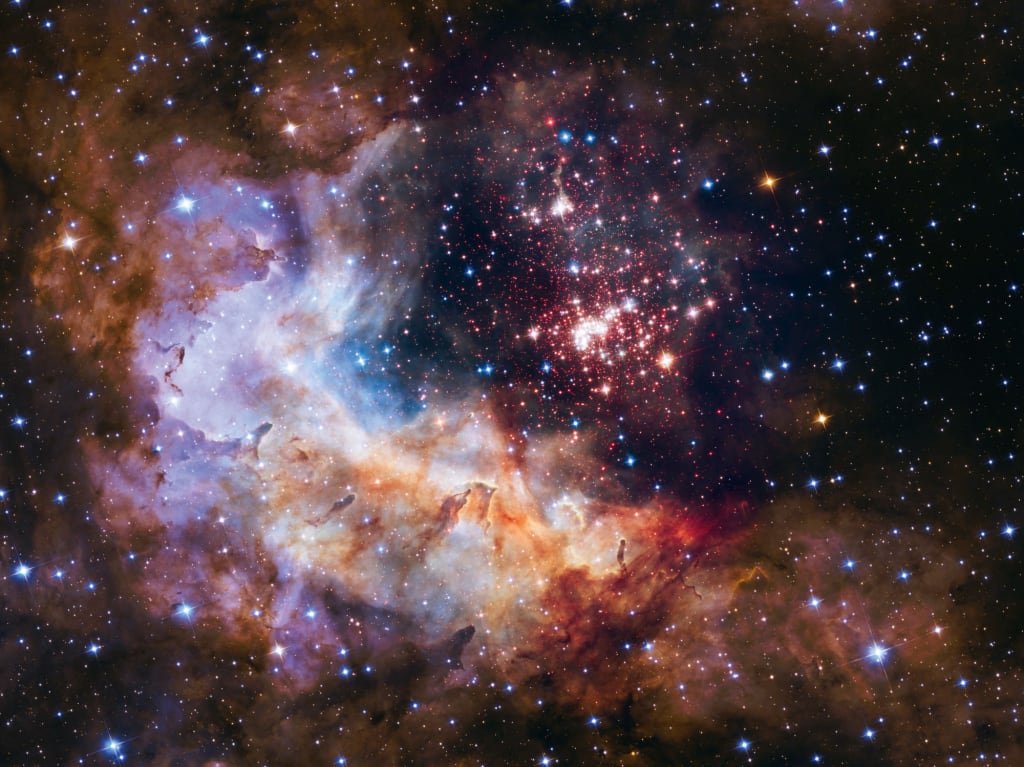
The universe is an infinitely vast and complex entity that has fascinated humans for centuries. It encompasses everything that exists, from the tiniest subatomic particles to the largest structures in the cosmos. In this article, we will explore the origins, composition, and evolution of the universe.
Origins of the Universe
The origins of the universe are still shrouded in mystery, but scientists have developed several theories to explain how it all began. One of the most widely accepted theories is the Big Bang theory. According to this theory, the universe began as a singularity, a point of infinite density and temperature. The singularity then began to expand rapidly, resulting in the formation of the universe as we know it.
Another theory that has gained popularity in recent years is the idea of a multiverse. This theory suggests that our universe is just one of many universes that exist in a larger multiverse. Each universe in the multiverse could have different laws of physics and different physical constants, which would explain the observed differences between our universe and others.
Composition of the Universe
The universe is made up of countless objects, ranging from subatomic particles to galaxies and superclusters. At the most fundamental level, matter is made up of atoms, which consist of protons, neutrons, and electrons. Protons and neutrons are made up of quarks, which are held together by the strong nuclear force. Electrons, on the other hand, are elementary particles that orbit the nucleus of an atom.
In addition to matter, the universe also contains dark matter and dark energy, which make up the majority of the universe's mass-energy. Dark matter is a form of matter that does not interact with light, while dark energy is a mysterious force that is causing the expansion of the universe to accelerate.
Evolution of the Universe
The universe has undergone significant changes throughout its history, from the formation of the first stars and galaxies to the present-day distribution of matter and energy. One of the key events in the evolution of the universe was the formation of the first stars. These stars formed from clouds of gas and dust, and their intense radiation and winds helped to shape the evolution of the universe.
As stars age, they undergo a series of transformations, eventually resulting in a supernova explosion that can scatter heavy elements throughout the universe. These heavy elements provide the raw materials for the formation of new stars and planets, which continue the cycle of stellar evolution.
Over time, galaxies began to form and cluster together, leading to the formation of larger structures such as galaxy clusters and superclusters. These structures are held together by gravity and continue to evolve over time, with galaxies merging and colliding to form new structures.
The Future of the Universe
The future of the universe is still uncertain, but scientists have developed several theories to predict what might happen. One possibility is that the universe will continue to expand indefinitely, with the rate of expansion gradually slowing down over time. Eventually, the universe could reach a state of maximum entropy, where all matter and energy are evenly distributed and the universe becomes a featureless void.
Another possibility is that the universe could collapse in on itself, leading to a "big crunch" where all matter and energy are compressed into a singularity. This scenario would result in the end of the universe as we know it, with no possibility of any further evolution or development.
Conclusion
The universe is a vast and complex entity that continues to fascinate scientists and laypeople alike. From its origins in the Big Bang to its present-day distribution of matter and energy, the universe has undergone significant changes throughout its history. While the future of the universe is still uncertain, scientists continue to study and explore the cosmos in an effort to unravel its mysteries and unlock its secrets.





Comments
There are no comments for this story
Be the first to respond and start the conversation.